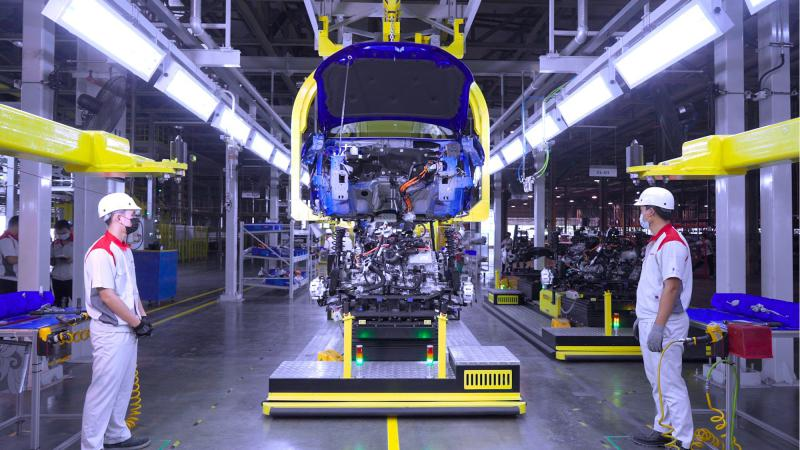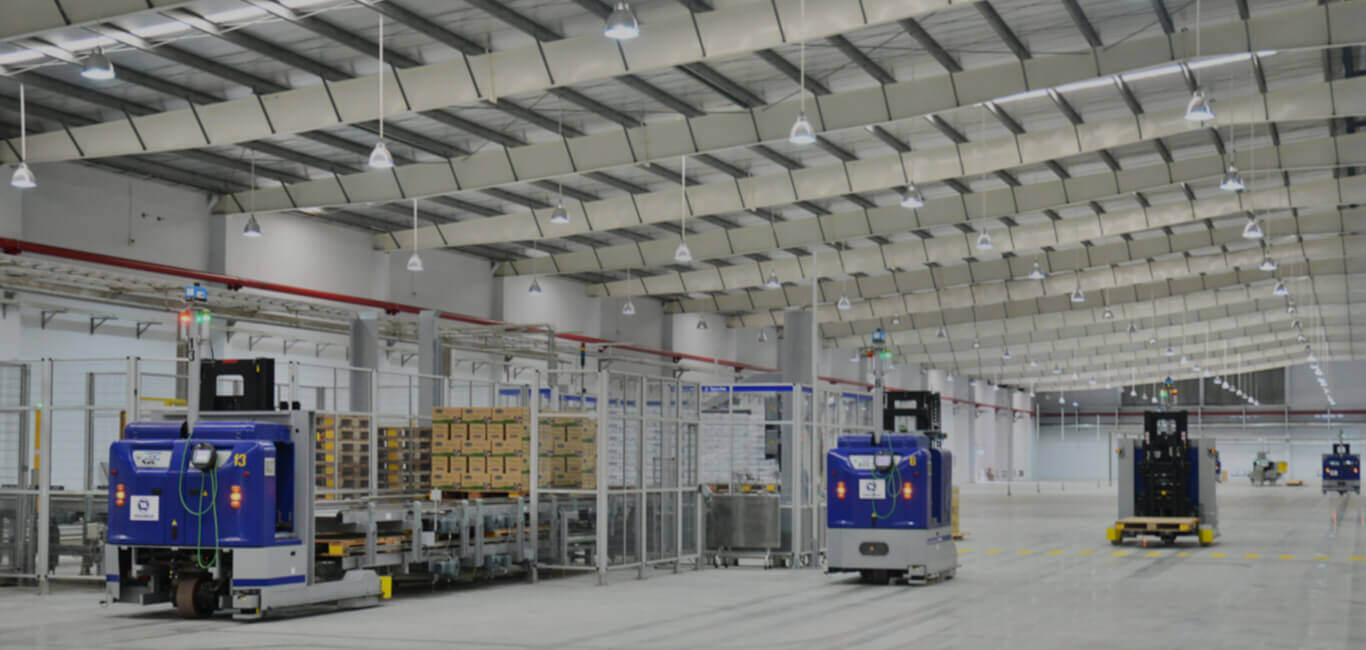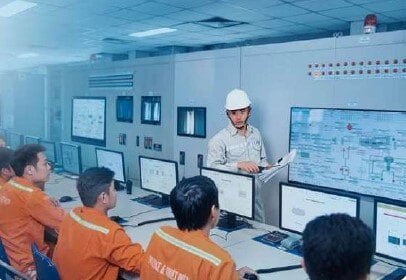Industry 4.0 is being fully embraced by manufacturers worldwide as enterprises aim to automate production tasks and gain clearer visibility into operations. Although manufacturers have used digital technologies for years, connectivity and technological maturity have only recently reached a point where more sophisticated solutions can be implemented.
Organizations that digitally transform with Industry 4.0—also known as the Fourth Industrial Revolution (4IR)—can improve productivity (increase throughput and volume) and minimize downtime. Digitalization allows you to do anything from monitoring the condition of equipment/machines to remotely providing technical assistance via Augmented Reality (AR).
This article highlights the exciting opportunities offered by implementing Industry 4.0 technology. It first identifies the technologies of the Fourth Industrial Revolution, then walks you through several real-world examples of it being applied in smart factories across the Southeast Asian region, one of the fastest-growing manufacturing hubs in the world.
What Are Industry 4.0 Technologies?
Industry 4.0 technologies are the technological solutions manufacturers use to digitally transform their operations. Think of mobile robots, Generative Artificial Intelligence (Gen AI), the Industrial Internet of Things (IIoT), data analytics, Augmented Reality (AR)/Virtual Reality (VR), private 5G, etc. Below are the various Industry 4.0 technologies categorized.
Communication Technology (CT)
- Wired (e.g., fiber, Ethernet)
- Wireless Wide-Area Network (Cellular (4G, 5G, LTE-M, NB-IoT); Non-cellular (LoRaWAN, mioty, DASH7, Sensus, etc.)
- Short-Range Wireless (Wi-Fi, Bluetooth®, etc.)
- Satellite Connectivity
Operational Technology (OT)
Hardware
- Programmable Logic Controller (PLC)
- Industrial Personal Computers (IPCs)
- Human-Machine Interface (HMI)
- Internet of Things (IoT) sensors
- Additive manufacturing
- Autonomous Mobile Robots (AMRs)
Software
- Artificial Intelligence (AI) Software
- Augmented Reality (AR)/Virtual Reality (VR)
- Digital twins
- Computer-Aided Design (CAD)/Computer-Aided Manufacturing (CAM)
- Product Lifecycle Management (PLM)
- Enterprise Resource Planning (ERP)
- Manufacturing Execution System (MES)
- Supervisory Control and Data Acquisition (SCADA)
Information Technology (IT)
Hardware
- Owned infrastructure
- Cloud-based infrastructure (private, public, or hybrid)
Software
- Product Lifecycle Management (PLM)
- Enterprise Resource Planning (ERP)
- Manufacturing Execution System (MES)
- Supervisory Control and Data Acquisition (SCADA)
Automotive
Industry 4.0 is gaining strong traction in automotive manufacturing. A notable example is Great Wall Motor’s (GWM) second-largest manufacturing plant outside China—its smart car factory in Thailand.
GWM’s smart factory uses intelligent robots to automate various manufacturing processes. While robotic arms perform welding and assembly tasks, Automated Guided Vehicles (AGVs) transport car components to and from the assembly line.
Manufacturing Execution System (MES) software is another Industry 4.0 technology GWM uses at its manufacturing plant. By deploying MES software, GWM plant operators can draw up virtual blueprints of operations. This allows the company to identify operational issues and accurately assemble vehicle parts.
Figure 1: Great Wall Motor’s Smart Car Factory in Thailand

(Source: Great Wall Motor)
Electronics Manufacturing
Electronics manufacturer Pegatron launched its first 5G smart factory in Vietnam by partnering with Vietell, the country's largest telco provider. The 5G network serves as the connectivity backbone for Industry 4.0 applications like the following:
- Digital twin of production processes using NVIDIA’s Omniverse platform
- AI-powered machine vision
- AR remote assistance
Figure 2: Press Conference for Vietell-Pegatron 5G Smart Factory Announcement

(Source: Pegatron)
Another Industry 4.0 example comes from specialty memory and storage solution manufacturer SMART Modular Technologies (SMART). With the adoption of IBM Maximo Visual Inspection, SMART’s production plant in Malaysia has AI-powered cobots deployed for automated inspection and quality control. The company anticipates that the solution will boost production yield and throughput by 10% and 20%, respectively.
Food & Beverage
Food & beverage manufacturers leverage Industry 4.0 technologies to monitor production, optimize quality control, automate tasks, transport goods, and reduce reliance on the labor force.
For example, Yili Indonesia Dairy has deployed IoT and big data analytics to improve production processes at its ice cream plant at the Greenland International Industrial Center. Moreover, the company uses robotics in automated factory packing, palletizing, and warehousing operations.
Vinamilk was an early adopter of Industry 4.0 technologies, having used Laser Guided Vehicles (LGVs) in manufacturing operations for about a decade. The LGVs provide automated transport of materials and completed dairy products on the factory floor. Vinamilk also deploys the MES software solution, Tetra Pak PlantMaster, for automating data collection, process monitoring, and remote control of production.
Figure 3: A LGV at Vinamilk’s Dairy Production Plant

(Source: Vinamilk)
Metals Manufacturing
Various Industry 4.0 technologies are embraced by Malaysian company Tonasco as part of its goal to “revolutionize” precision manufacturing.” IIoT devices and sensors are integrated into production machinery, and AI improves predictive maintenance. Other Industry 4.0 technologies used at Tonasco’s smart factory include robotics automation, digital twin simulations, Computer-Aided Manufacturing (CAM) software, and Enterprise Resource Planning (ERP).
Steel manufacturers Hoa Phat Group and SteelAsia have also embarked on an Industry 4.0 journey. Hoa Phat has adopted IoT, big data analytics, ERP, and supply chain management software to improve operational transparency. SteelAsia has partnered with SMS group to create an AI-supported central data platform. The platform provides operators at the company’s Calaca steel plant with a single source of truth about its plant and equipment performance.
Figure 4: Hoa Phat Plant Operators Using Digital Technologies

(Source: Hoa Phat)
The Future of Manufacturing Is Digital
Manufacturers are at varying stages of their Industry 4.0 journey. Some are just adopting digital technologies now, focusing on applications with the most immediate impact. Other manufacturers have been embracing digitalization for years, with the goal of achieving end-to-end visibility and full automation of the production chain.
As enterprises increasingly participate in the Fourth Industrial Revolution, there will still be some potential challenges to contend with. For example, low labor costs in Asia might make it more attractive to keep human workers and avoid the initially high upfront costs of technology solutions. Moreover, some countries in Southeast Asia lack the talent to harness the full power of Industry 4.0.
If you’re interested in learning more about Industry 4.0's transformative impact and examples of how it can best be leveraged, visit ABI Research’s Industrial & Manufacturing Markets and Southeast Asia Digital Transformation research services.

